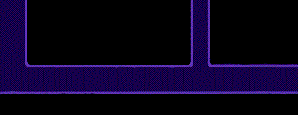

Home
|
Rules and Regulations
|
Tips/Strategies
|
Free Newsletter
|
Hall Of Fame
|
Learn More
|
Arts
|
Business
|
Computers
|
Games
|
Health
|
Housing
|
News
|
Recreation
|
Reference
|
Regional
|
Science
|
Shopping
|
Society
|
Sports
|
World
|
|
|
"One Team Already in Preparation"
by Steven, 2.3.2001, 4:17 pm EST
The man responsible for conceiving and implementing the project that delivered the first complete graphical user interface OS to market, Jef Raskin, has recently found himself out of favor in the Mac community, a group that normally includes him with The other apostles that surround the legend of Apple Computer. His crime was referring in an offhand way to OS X as a "throwback" during a recent interview, saying "Look at OS X, that Apple's coming out with: everybody who works on it says it's a throwback to the 1970s in terms of structure. It's UNIX, it's backwards."
This comment certainly gives one pause for thought. Isn't UNIX the end all of enterprise operating systems, renowned for its power and stability? And isn't OS X finally bringing the power of preemptive multitasking and protective memory to the Mac? Of course.
But when Raskin says throwback, he's referring neither to the qualities of respective operating systems nor to the history of UNIX, the industry workhorse. Understanding Intuitiveness In 1993, Raskin argued that the concept of the OS as an application interferes with the ability of the user to do actual work -- the very task the computer was designed to facilitate. "One big mistake is the idea of an operating system ... [which] is the program you have to hassle with before you get to hassle with the application. It does nothing for you, wastes your time, is unnecessary," Raskin reportedly said. Raskin goes on to illustrate that a computer should be as easy to use as to start typing on a keyboard to open a word processor -- with no lost keystrokes, or to put a stylus to a tablet and start drawing in a graphics app. OS Obsolescence In short: the omnipresence of the OS is obsolete. Certainly the breadth of computer applications makes Raskin's theory that a specific input device should activate a specific program on a multipurpose program somewhat naive.
That is one reason why Microsoft is having such a hard time finding its way into specific purpose devices, as opposed to Be, Linux, Java and PalmOS, which are much more suited to the task of being implemented on a smaller scale. The ability to be transparent, such as on the Palm handhelds and the eVilla (BeOS), is far more important to many users than the ability to modify the start menu on the fly, or to tear off the taskbar to save a click. This position is corroborated by the rapid acceptance of Palm computers in the consumer market, as opposed to the slow, gradual acceptance of the personal computer.
Adopting New Ideas The PC itself, if I may add, is still not warmly embraced by a great many users. They may love the tools, but the "computer" itself gets in the way of doing work in the same way that lacking any trade specific skill makes a job that requires those skills more difficult.
The idea of walking up to a PC in sleep mode and hitting a button, which would instantly activate a specific app, is compelling. The OS would manage all the applications in the background. If you wanted to switch apps, you hit another hot key. Work files could be stored in yet another "button." Interactivity between the apps could be facilitated the same way they are now, with a GUI shell, but without the preponderance of icons, start menus and switchers, and without the tedious effort of installing apps via the GUI or customizing your environment.
New Ways to Compute Would such a single-purpose device replace the PC? No, because the PC has a purpose, and even so-called computer people would still find many compelling uses for them.
Would such an appliance -- a home browser, word processor, spreadsheet, and game console -- be a popular item that would replace the PC in the household? Wildly so, especially if installing new programs was made simple, such as inserting a disk, selecting its activator key, ejecting the disk and running it, installed on your system until you remove it.
The folly of multipurpose OS and absurd .NET style ideas is that they keep lumbering forward with the idea that people prefer innovation and flexibility to predictability and stability. Raskin wasn't criticizing OSX for its qualities as an OS, but for the fundamental principal that it represents: something standing between you and whatever you want to do.
-Dudley.....just used as example..........from forum....longest message I could find.
|

